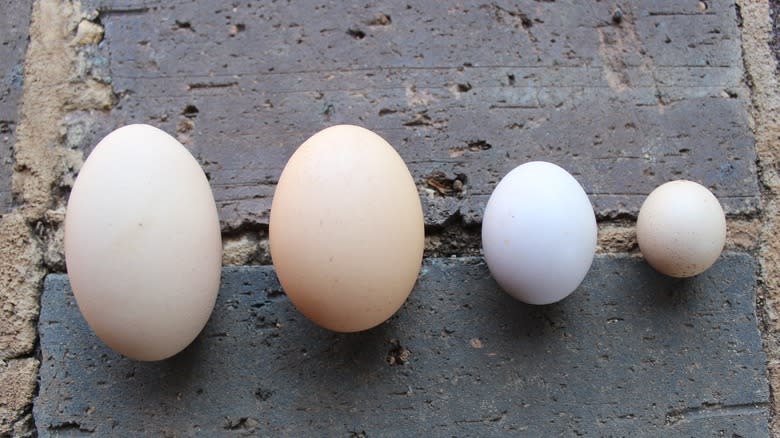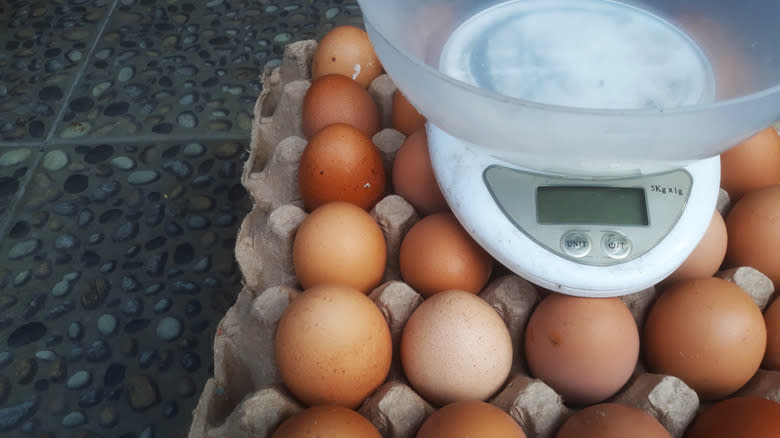What Egg Size Are Baking Recipes Based On (And Does It Matter)?

Eggs are an essential ingredient in everything from breakfast sandwiches to a classic chocolate layer cake. But when a recipe states the number of eggs required without reference to their size, it may leave you wondering whether a medium egg will do the trick or if a jumbo egg will ruin the dish. There is a lot to know about the sizing of eggs, but the first and most important bit of information is when a baking recipe requires them, it usually means to use the large size.
Labeling an egg as "large" isn't a subjective opinion on its size. It's a regulated classification that allows consumers to better understand the size of the eggs in the carton. This is helpful when planning breakfast for guests, mapping out your holiday baking, or delving into that French meringue. It's also a way to ensure you're using the right egg for the job -- or to know when you need to make adjustments if it's not.
Read more: The 20 Best Egg Brands, Ranked
Does Egg Size Matter When Baking?

If you're adding eggs to dishes such as fried rice or breading chicken breasts for a chicken parmesan recipe, being precise in measuring eggs as an ingredient doesn't take high priority. But when it comes to baking, eggs play many important roles. The quantity of eggs works in conjunction with other ingredients, creating loft for cakes, balancing moisture in custard, and developing a soft, rich crumb for your cookies.
Sometimes, recipes will specify the size of egg to use, such as medium or extra large. If it doesn't, you can safely assume a large egg will do the job. If the recipe calls for one or two eggs, you probably won't notice any effect on the final product if you swap out large eggs for another size. However, if you're making a dish that calls for several eggs, the slight difference in each one can add up. Using seven small eggs instead of seven large eggs, for example, could mean using the equivalent of two fewer large eggs. Similarly, using four jumbo instead of large eggs can add the equivalent of an extra egg, so you may need to use less because these differences can affect the texture and consistency of baked goods.
An Egg Is An Egg Is An Egg - Or Is It?

Now that you know large eggs are usually what you'll use in your baking recipes, you might want to better understand what the term means. Fortunately, the USDA has this all mapped, saying, "Egg sizes are Jumbo (30 oz. per dozen), Extra Large (27 oz. per dozen), Large (24 oz. per dozen), Medium (21 oz. per dozen), Small (18 oz. per dozen), and Peewee (15 oz. per dozen)."
As you can see, it's more about weight than size. However, the imprecise part of the government's classifications is that they don't provide any information about the weight of each egg. Instead, the categories are chosen by the total weight of one dozen eggs. However, even though it's a bit generalized, an extra-large egg is bigger than a medium one, and a small egg holds less volume than a jumbo, so this simplified identification works in most cases. But, if a recipe does require a high degree of precision, chefs recommend weighing unshelled eggs. For reference, when you average out the weight of each egg in the "large" category, you'll find they will weigh around two ounces each, so to get the most consistent and accurate results, get crackin' and weigh them as the pros do.
Read the original article on Daily Meal

